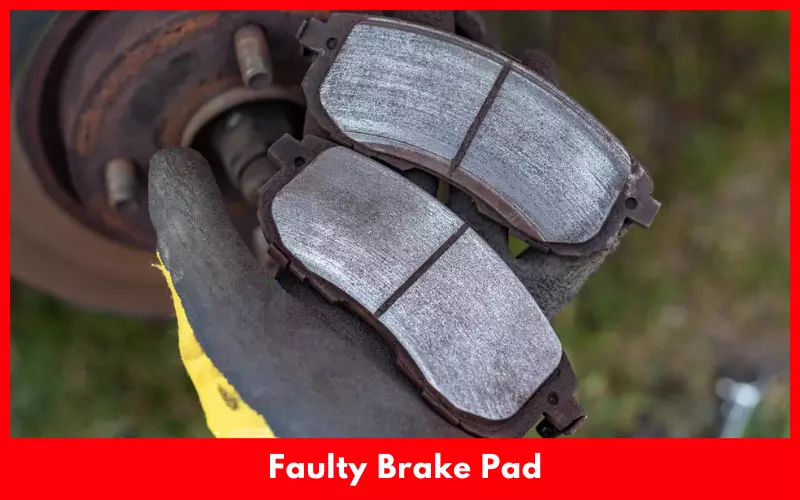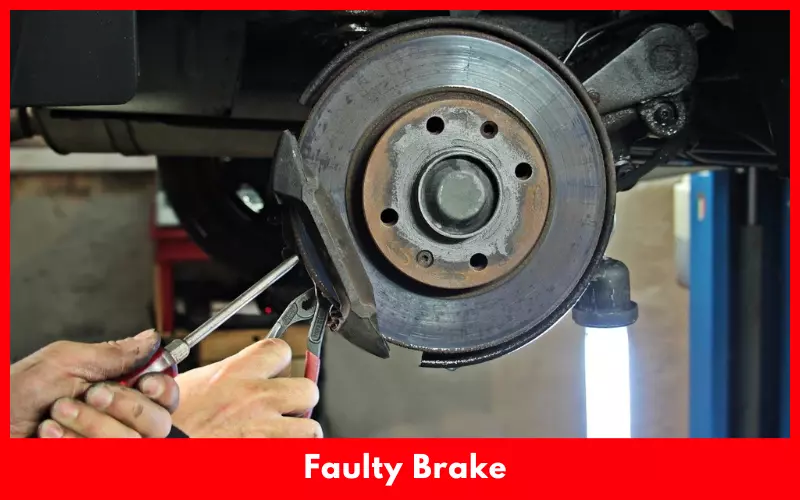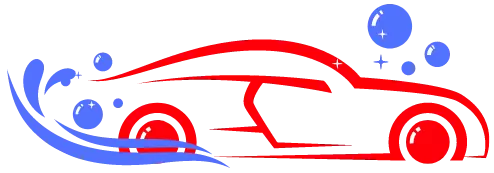Car can make different types of noises when you apply brake. Sometimes your car can make squeaking noise while driving but not brakes applied. You can hear a squeaking sound while driving due to plenty of reasons such as damaged brake pads, bent splash plates, jammed drum brakes or faulty brakes.
Squeaking noise basically generates from front wheel or rear wheel when driving slowly. Though it isn’t too risky to drive a car with squeaking noise. You can solve this car noise and continue driving your car.
Article Summary
Reasons of Squeaking Noise while Driving But Not Brakes Applied
You can hear squeaking noise when driving the car due to these potential reasons even without applying the brakes:
1. Faulty Brake Pad
Brake pads are the essential part of the brake system that move and grip the rotor when the driver applies brakes. There is also a wear indicator that is connected to brake pads. When the brake pad wears down, the indicator contacts the steel rotor and creates squealing noise to inform you about the condition of the pad.
The brake pad may also catch dust and debris or become too hot or glazed over. Whatever the reason is, you should change brake pads or rotors to solve the problem. If you hear the noise after depressing the pedal lightly, collect some anti-squeal brake paste and apply them on the pad to reduce noise.

But if you hear a squeaking noise without braking hard, change the brake pad or lining with different types of ones.
If you hear a loud sound while driving and the sound disappears after stepping on the brake, the sensor on the brake pad is rubbing and creating noise. You have to replace the car’s brake pads.
2. Bend Splash Plates
Splash plates are flimsy metal parts and are inboard of the wheel assembly. They can bend very easily by getting caught. If the splash plates catch the disc during driving, it can make a squeaking noise.
You won’t have to lift the car to check the splash plates. Just put your car on lock and reach under it. Then, bend away the splash plate from the brake assembly. Do the same on the other side of the car.
3. Jammed Drum Brakes or Calipers
Drum brakes also known as callipers in today’s vehicles contain various brake-related components including brake pads. This brake system significant components can hold dust if you use it frequently for braking. The dust can then cause the drum system to corrode which may create squeaking noise.

If the drum brake becomes jammed due to dust, the brake may activate automatically and make a squeaking noise. The common sign of a jammed drum brake is the car tends to tug to the roadside. The rotor can cause a fire if you keep driving in this condition.
4. Rock or Debris
Another possibility is that a rock, tree limb or debris may catch between the rotor and the rotor guard. You can hear a squeaking noise while driving without braking because of dirt and debris.
It can happen if you often drive a car in rural places. To fix this problem, look for those unessential items in the rotor and the brake pads and remove them if found.
5. Faulty Brake
The automobile’s squeaking noise usually comes from either brakes or belts. If you experience squeaking noise coming from underneath the hood, the belts may be slipping. You can determine if the brake system having the problem.
If you hear a squeaking sound under the hood immediately after turning on the vehicle, during using A/C compressor system and turning the vehicle using power steering, the belts are responsible. Conversely, if you notice a squeak when braking or the vehicle is moving but disappears when braking, then the brake system is responsible.

After realizing the belt is causing the squeak, check its tightness and change the belt if it’s worn. If you hear squeaking during turning, replace the steering belt.
If the noise becomes noticeable after turning on the A/C, change the A/C belt. Replace the timing belt and serpentine belt when car is idle if the sound coming. You may need to consider other alternator belts if you hear a squeaking noise from under the acceleration or load.
6. Damaged Alloy Plates
There are some small alloy plates in the brake system where brake pads sit. These alloy plates should attach to the calliper or drum brake properly. If not, the alloy plates can make noise because of the vibration.

If you are experiencing a squealing sound while driving but no brakes are applied in your Mercedes, the alloy plates can be responsible. Mercedes manufacturers apply a paste during refitting pads and glue the alloy seat plates. This type of rubbery paste sets but doesn’t become hard.
If these plates get damaged, the brake pad can start making an irritating squeaking noise. If so, you have to replace the plate that is available in most auto parts places. To fix this issue, you have to disassemble the calliper and replace the plates.
7. Damaged Rear Brakes
Do you hear a squeaking noise while driving slowly? It can happen due to the damaged rear brakes. Through rear brakes usually take less braking force, it provides stability to prevent rollovers and spin-outs.
Your car’s rear brakes can get damaged due to plenty of reasons including sticking brake calliper piston, restricted brake flex hose, and dirty and sticking brake calliper slide pins.
As a result, your car can start creating squeak noise. A common sign of a damaged rear brake is hearing a squeal sound while driving the car at 5 to 10 mph, particularly on a downhill road.
The squeaking noise may disappear after increasing the speed to 15 mph or faster. You may also hear car sounds like lawn mower between metals. To fix this problem, you have to hire a professional mechanic for full inspection and service of all the rear brakes. The mechanic will remove both rear wheels and replace, free or adjust anything if required.
Can You Drive Car with Squeaking Noise But Brakes are Not Applied?
It isn’t dangerous to drive a car with squeaking noise. The reason is that your car’s brake system doesn’t become unusable and you can still control the car quite accurately. However squeaky noise can be very irritating to the ears. And you can’t ignore the risk of driving with a faulty brake system.
Things can happen, the car’s brake simply gets overheated or dust causes the problem. If so, leave the car for a while or clean the brake system by yourself. But if your car making squeaking noise due to a complex issue, get the brakes inspected by an expert mechanic who knows what he is looking at.
In worse cases, the brake pad may get low enough and the lining can wear down to the steel backer. So, the rotors can ruin completely and turn a cheap brake pad replacement into a costlier repair. Remember, rotors aren’t cheap and you may need to spend up to $300 per rotor per axle. So the sooner you’ll fix the brake, the better.
FAQs
Why I’m Hearing A Grinding Sound While Driving But Not brakes applied?
There may have a problem with your car’s water pump. The water pump keeps the engine cool and prevents car engine from overheating. But the aged water pump can malfunction and make a grinding noise. If so, you have to repair or replace the water top to stop the grinding noise.
Why Car’s Brake Squeaking Even When It’s fine?
Your car’s brake can squeak even when it’s fine due to faulty metallic or ceramic pads. Sometimes, pinecones, twigs, or rocks may stick between the rotor and the brake pad and cause an annoying squeaking noise.
Can I lubricate My Car To Stop Squeaking Noise?
If your car is squeaking due to insufficient lubrication in the steering parts, applying lubricate can solve the issue. However, you can’t apply oil or any petroleum-derived liquid to the steering components. It can make the rubber bloat and cause a breakdown over time. Instead, use WD-40 or the car’s manufacturer-recommended lubricants.
Final Words
Hope you figured out why your car makes squeaking noise while driving but not brakes applied. Whatever the reason is, don’t decide to keep driving with squeaking noise. Otherwise, it can cost you thousands for repairing. So take the car to an expert mechanic and fix the problem and enjoy quiet, safe, and comfortable driving.


I didn’t find the actual problem of squeaking noise after examining my car for 3 hours. Thanks to mr henry, it was just my rare bare pads, haha.
I’ve been experiencing the same issue with my car lately and I really appreciate you breaking it down and providing some possible causes. I’m going to try the simple trick of cleaning the belt tensioner upgrade as you suggested. Will definitely let you know if it makes a difference!